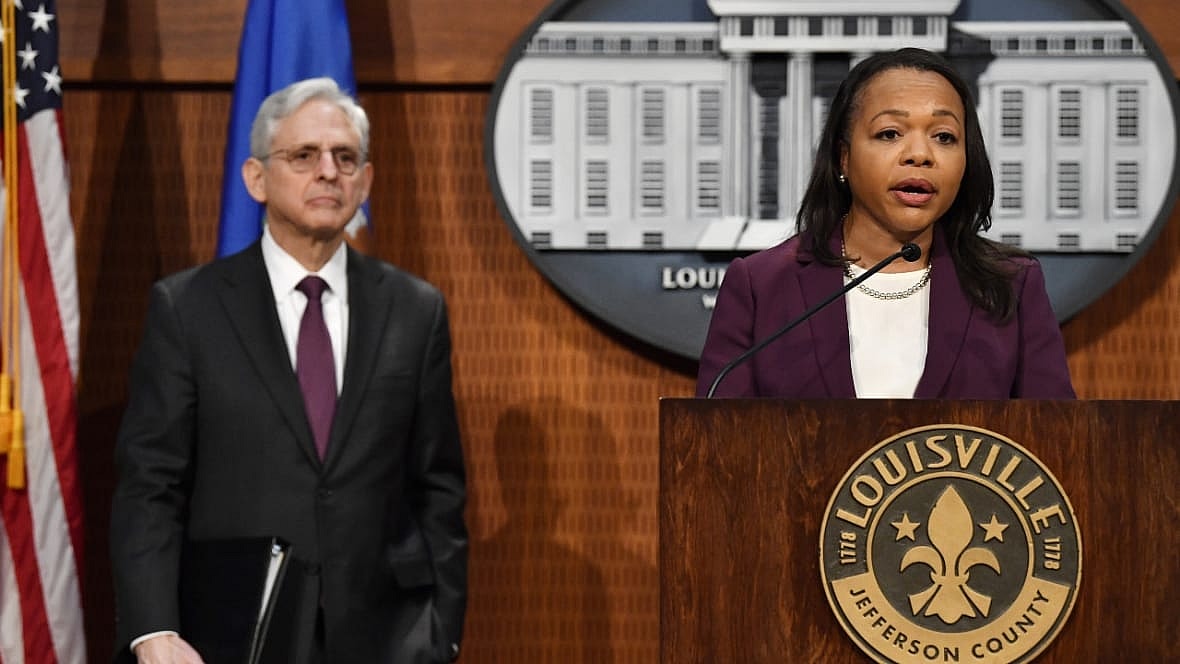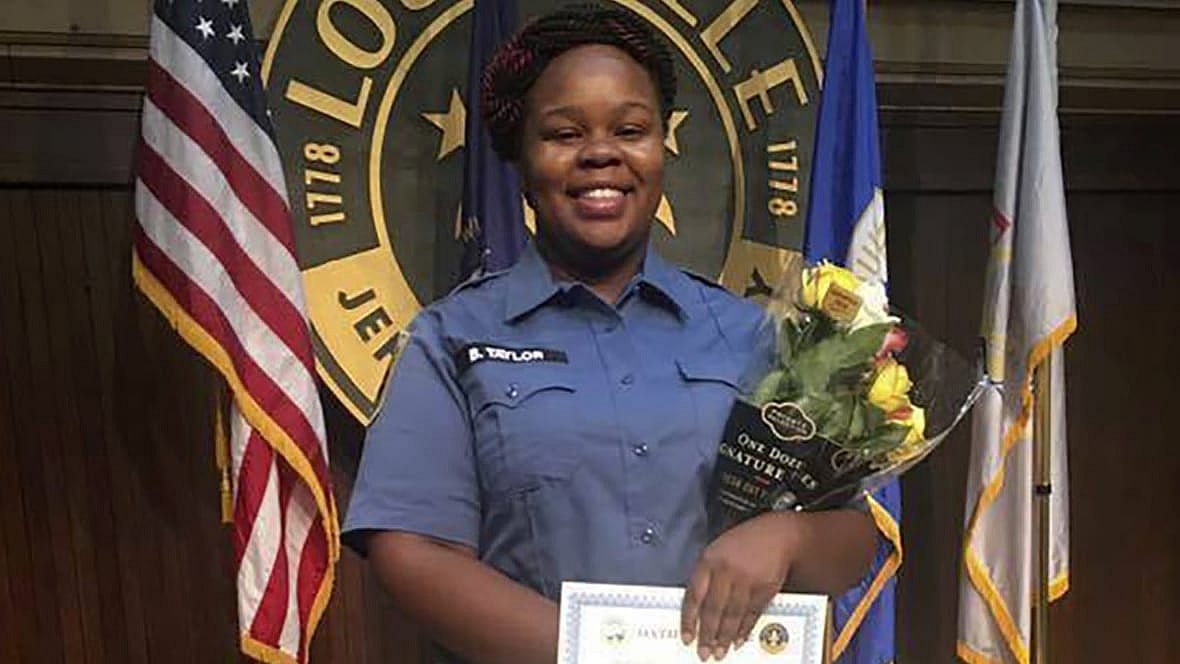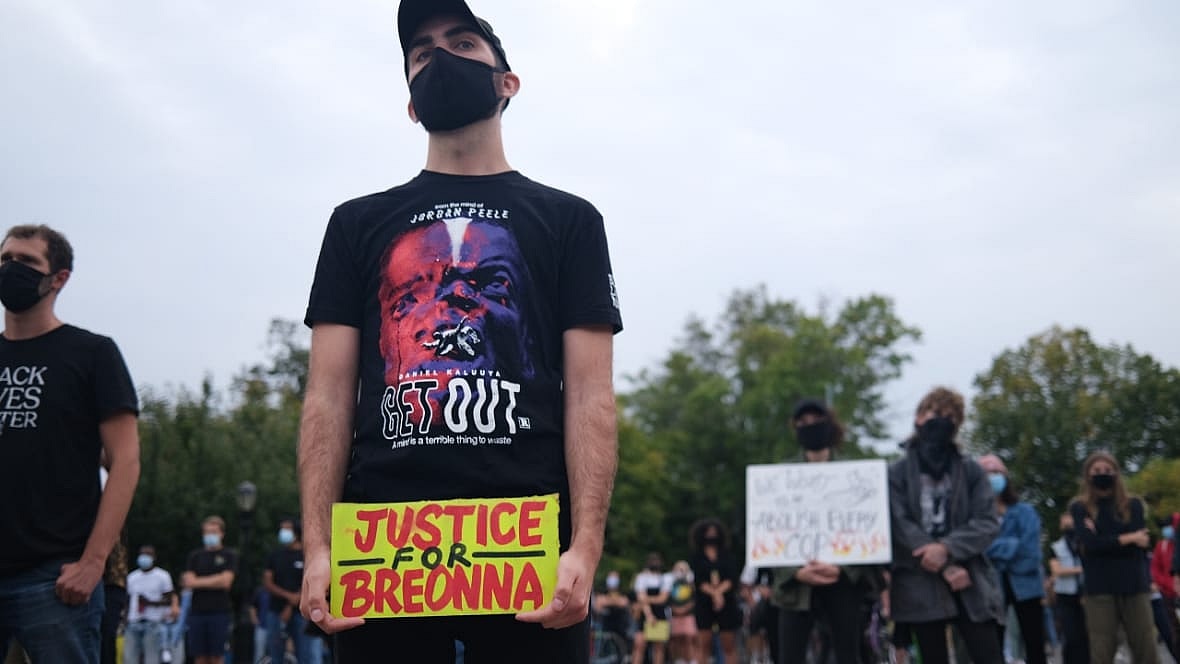The Louisville Metro Police Department has agreed to enter into a consent decree with the federal government after the Department of Justice found that Louisville police officers routinely engage in discriminatory practices.
During a press conference on Wednesday, Kristen Clarke, assistant attorney general for civil rights, told reporters that “the Louisville Police Department can do better” and that Louisville residents “deserve policing that is fair and non-discriminatory.”
She added that authorities in Louisville “breached the public’s trust and discriminated against Black people through unjustified stops, searches and arrests.”

The Justice Department also found that Louisville officers consistently engage in conduct that violates constitutional rights and federal law.
For two years, the DOJ shadowed officers, participated in ride-alongs with law enforcement, watched thousands of hours of body camera footage, reviewed documents regarding the LMPD’s conduct and spoke with city leaders, judges, lawyers, community members and advocacy groups to address deficiencies within the department.
Attorney General Merrick Garland told reporters that the police department used “excessive force, including unjustified neck restraints and the unreasonable use of police dogs and tasers.”
During the press conference, Clarke maintained that Louisville’s law enforcement also took part in discriminatory practices against its Black residents.
“Black drivers were almost 50 percent more likely to be searched than whites,” she stated. “LMPD charges Black people at higher rates than white people for the same misdemeanor offenses.”
Black Lives Matter board member Cicely Gay told theGrio “policing does not keep” the Black community safe.
“It took two years for the DOJ to conclude what we already knew — that the patterns and practices of the Louisville Police Department were especially aggressive towards Black people,” she said.
“The overall system of policing is racist, targets and harms Black people,” Gay continued. “Policing does not keep us safe.”

The DOJ launched an investigation into the LMPD’s policies following the death of Breonna Taylor. On March 13, 2020, Louisville police officers shot and killed the 26-year-old emergency room technician during a flawed narcotics raid as she slept in her apartment.
While speaking with reporters, Garland recounted the events that unfolded, noting the officers were executing a no-knock warrant when they “shot and killed Breonna Taylor in her own home in the middle of the night,” however, they “found no evidence of any crime.”
Clarke told reporters that the DOJ’s investigation found that police officers in Louisville regularly “sought search warrants without justification … defying federal law and putting ordinary citizens in harm’s way.”
“They often serve these warrants at night,” she said. “These tactics are dangerous. Officers can be misidentified as intruders, and they may misinterpret shock and surprise as a threat. All of this puts the public at risk.”
Gay told theGrio the DOJ’s findings support the call to “defund the police.”
“There’s no being held to account for this kind of misconduct and blatant racial discrimination, aggression and abuse towards Black people. This is why the system just can’t be reformed. It must be defunded,” she said.
According to Garland, in recent months, the Louisville Metro Police Department has implemented changes that include no longer issuing no-knock warrants, deploying behavioral health professionals for certain 911 calls and providing violence prevention services to the community.
The DOJ has also recommended 36 additional measures, which include better training for officers and policies that reprimand officers for misconduct.

Gay criticized the DOJ’s proposed recommendations.
“The solutions that the report proposes have been tried and failed, most of the recommendations,” she told theGrio. “I want to underline recommendations. They’re not mandatory and won’t reduce police harm and killings of Black people.”
“These are bare minimum efforts,” Gay added. “They should be expected of anyone who is actually trying to protect people and keep us safe.”
TheGrio is FREE on your TV via Apple TV, Amazon Fire, Roku and Android TV. Also, please download theGrio mobile apps today!

